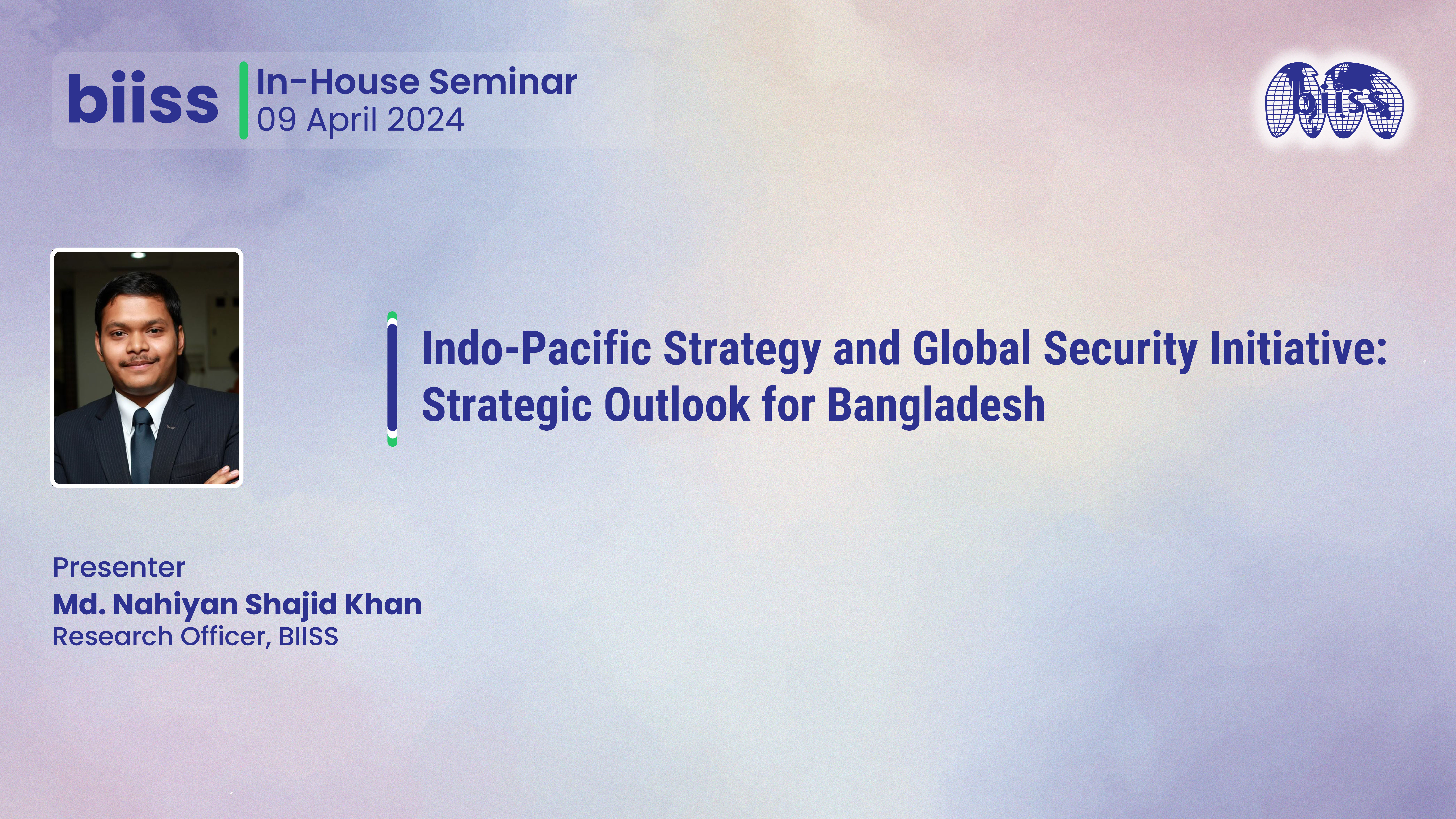"Indo-Pacific Strategy and Global Security Initiative: Strategic Outlook for Bangladesh"

This in-house seminar offers a comparative analysis of the two competing grand strategic visions shaping the Indo-Pacific: the United States-led Indo-Pacific Strategy (IPS) and China's Global Security Initiative (GSI). These frameworks represent fundamentally different approaches to regional order, security, and governance. The seminar will begin by dissecting the core components of each initiative. It will examine the IPS's emphasis on a "Free and Open Indo-Pacific," a rules-based order, freedom of navigation, and a network of alliances and partnerships. In contrast, it will analyze the GSI's principles of "indivisible security," non-interference, and a rejection of "bloc politics," which Beijing presents as an alternative to the US-led security architecture.
The central focus of the discussion is to formulate a strategic outlook for Bangladesh. As a country with a pivotal location in the Bay of Bengal and significant relationships with both China and the key proponents of the IPS, Bangladesh is uniquely positioned at the confluence of these competing visions. The seminar will assess the points of convergence and divergence between the IPS, the GSI, and Bangladesh's own Indo-Pacific Outlook. It will explore the opportunities and risks associated with engaging with each framework, from infrastructure and economic benefits to the potential for being drawn into great power rivalries. The key question is how Bangladesh can navigate this strategic competition to maximize its benefits while preserving its foreign policy of "strategic autonomy." The seminar aims to generate nuanced policy recommendations on how Bangladesh can selectively engage with elements of both frameworks that align with its national interests, thereby contributing to regional stability while safeguarding its sovereignty and development aspirations.